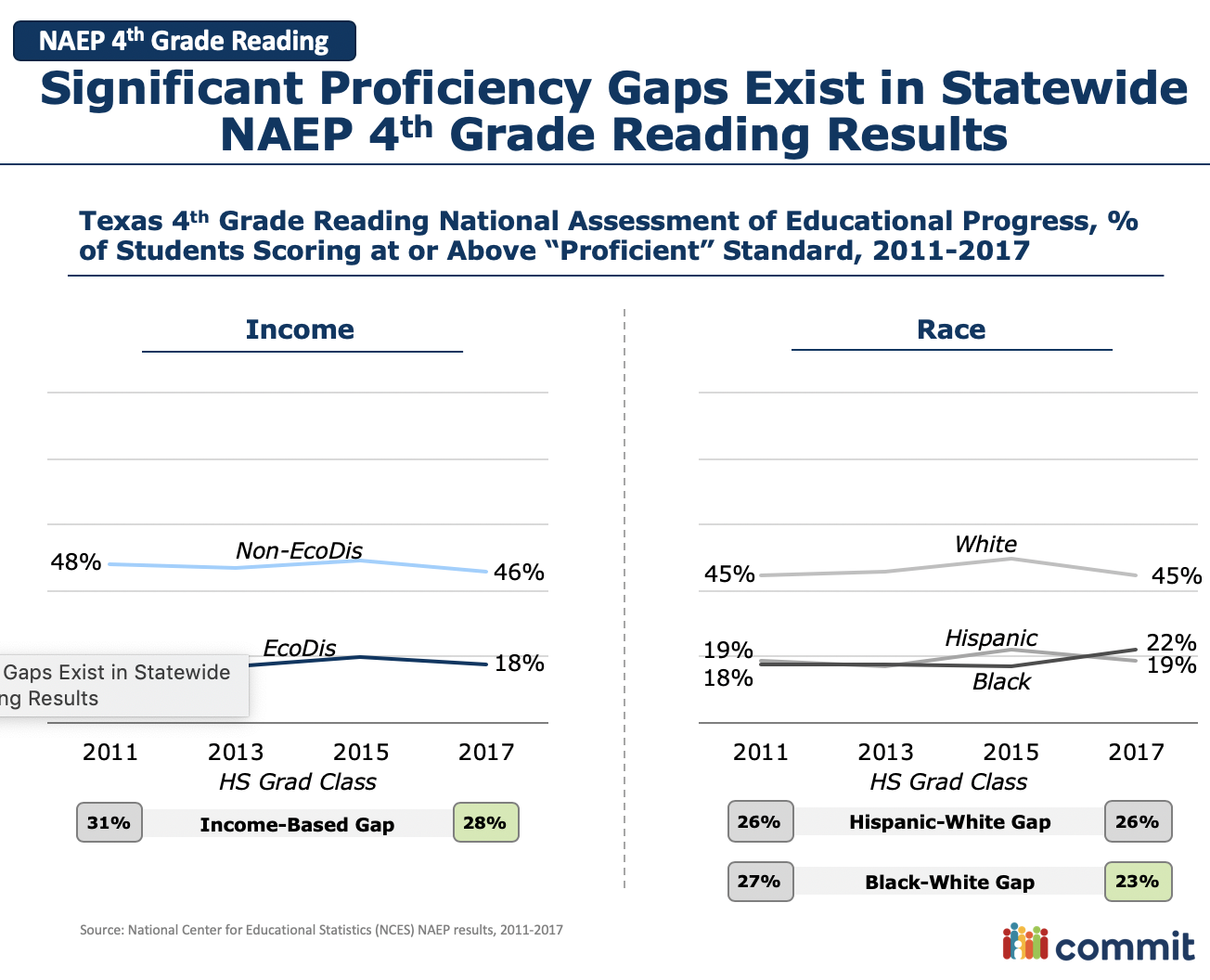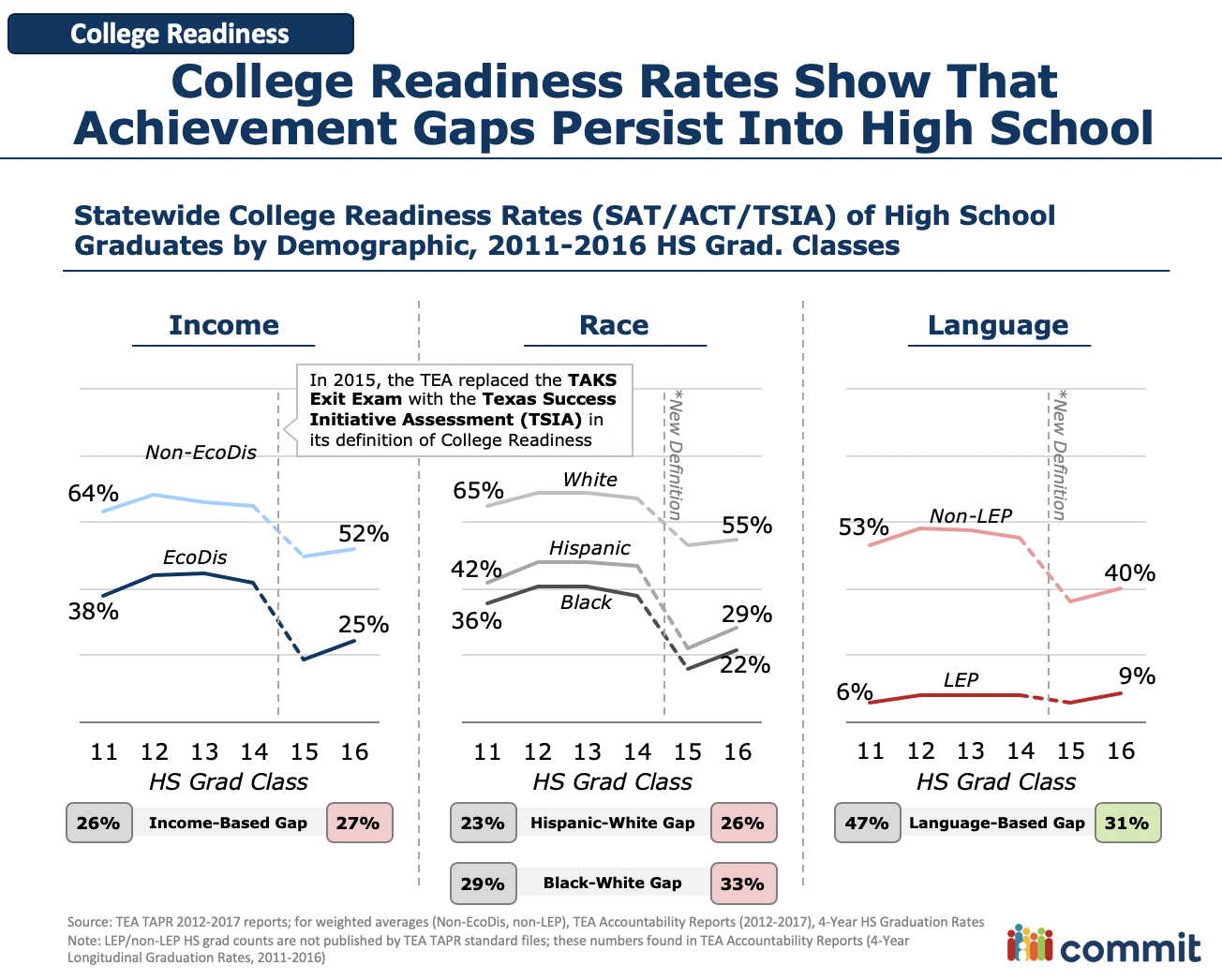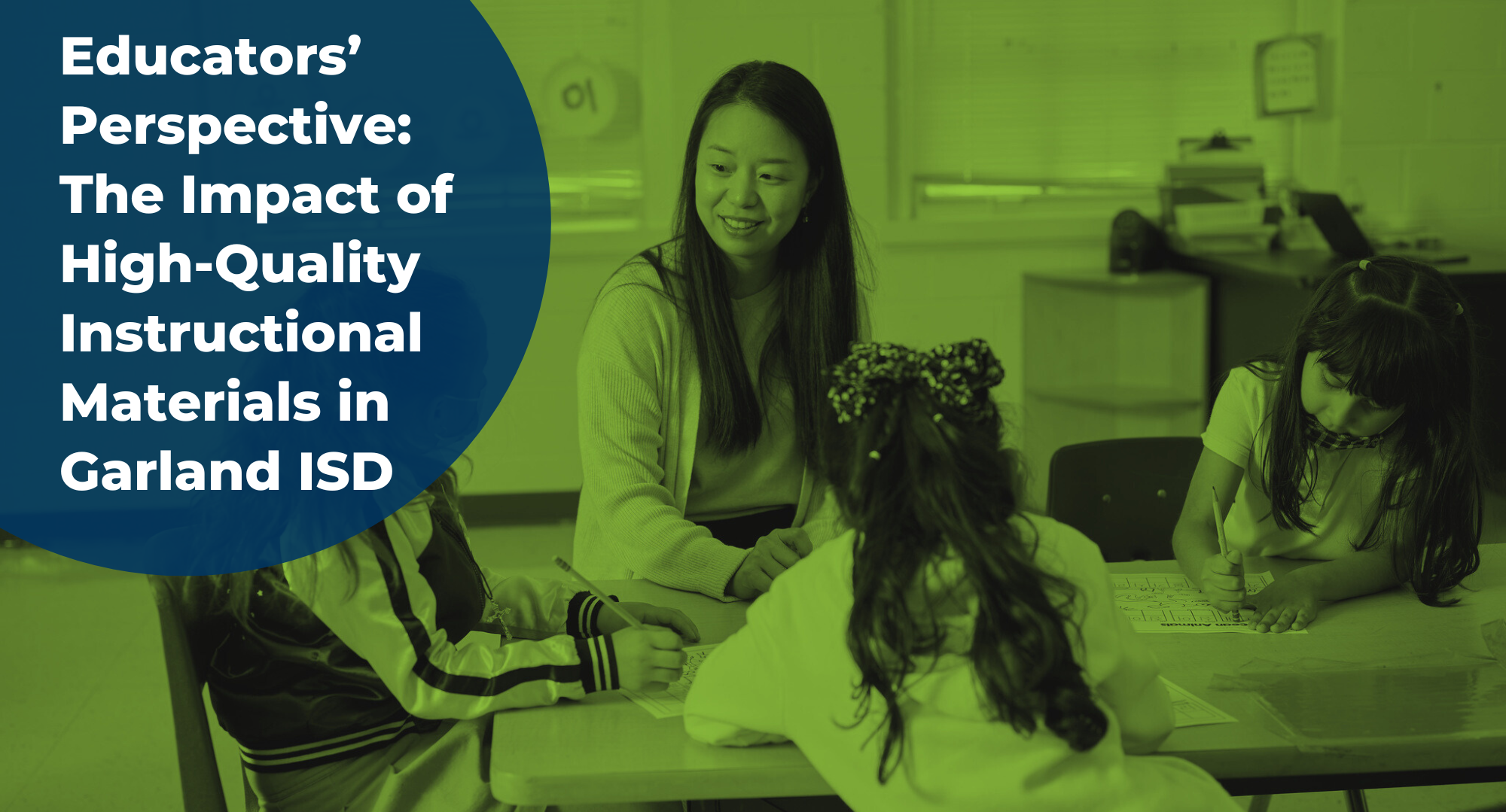Texas educates more than five million public school students. 65% are students of color. 60% are considered economically disadvantaged. And all of them deserve an excellent education that allows them to pursue their dreams and become contributing adults to our communities and our state.
Texas Monthly recently published an article entitled “Are Texas Kids Failing? Or Are the Tests Rigged,” noting that a group of educators and testing experts has recently studied our state’s standardized assessments (known as STAAR) and believes that the test asks students to understand passages written two or more years above their grade level in certain subjects. The STAAR exam has a significant impact in a public education system that educates 10% of our nation’s students, ranging from a campus’ and district's A-F “grade” to student and school interventions to district priorities and associated spending.
State assessments must be trusted by a broad group of stakeholders, including both educators responsible for leading our schools as well as legislators and taxpayers responsible for adequately funding them. Without trusted assessments, parents cannot make good decisions about what is best for their child. Educators cannot make critical judgments on the right interventions for their students or the right professional development for their teachers. Without sufficient confidence, legislators may hesitate to invest hundreds of millions (if not billions) of dollars in critical strategies designed to improve the academic outcomes of our children. This need for this trust is critical, and early reactions to STAAR concerns by Senate and House leaders indicate that review of the state assessments will be a priority in upcoming hearings, as they should be.
But, it is worth noting that STAAR is not the only assessment that indicates that Texas is struggling to effectively educate all of our students. The recently concluded year-long bi-partisan and bi-cameral Texas Commission on Public School Finance, which included legislators, community leaders, teachers, and district leaders, looked at several assessments in arriving at its 35 recommendations for the 86th Legislature to consider. Those assessments included data from SAT and ACT college-entrance exams, the National Assessment of Educational Progress (also known as “NAEP” or the “Nation’s Report Card”), and the percentage of students who are required to take remedial classes in higher education following their graduation. Postsecondary enrollment and completion rates for Texas high school graduates were also studied.
Regardless of the measure used, it is clear that current educational outcomes within Texas are not where our students deserve them to be. The Commission’s final report concluded that our public school finance system has not kept pace with our state’s changing demographics, and that significant investments must be made, particularly within our most disadvantaged populations in the critical areas of early reading and post-secondary readiness/access.
According to the Nation’s Report Card, just 29% of our 4th grade students are reading at a proficient level (much lower than the 46% judged proficient by STAAR at the “Meets” standard in 4th grade reading). While we rank second nationally in high school graduation rates at 90%, only 16% of Texas high school graduates attained a college ready entrance exam score in 2017, ranking us 39th and 43rd nationally in overall ACT/SAT results, respectively. And according to the Texas Higher Education Coordinating Board, just 28% of our high school graduates go on to attain a critical postsecondary degree six years following their high school graduation.

Even more concerning are the equity gaps among Texas students based on income, native language and race. As reported by both NAEP and STAAR, Texas low-income students are roughly half as proficient as their non-low-income peers in literacy and math, while their SAT/ACT college readiness is five times lower. Even decisions not determined by STAAR or NAEP are not equitably determined. Higher income, white 3rd grade students are identified as gifted and talented (and judged worthy of additional resources and focus) at rates more than twice their peers who are either low-income or students of color. If we believe that talent is distributed equally but opportunity is not, we have to end these gaps early before they take root and widen further.

There is little doubt that current student outcomes in Texas place our future at risk. Texas’ robust economic miracle is not sustainable if our graduating students aren’t prepared because we’ve inadequately and inequitably invested in them. The Texas grocery giant H-E-B determined that they needed to rewrite their employee training manuals from an eighth grade to a fifth grade level. Importing talent educated outside of Texas cannot be our only response if we believe that all Texas children deserve an equal shot in participating in our state’s prosperity.
Every day, over 750,000 hard working educators come to work in Texas, determined to deliver a quality education to their students. Many are using innovative strategies that demonstrably improve student success and prove demographics don’t have to be destiny. These strategies should be identified, funded and scaled where applicable and appropriate. The potential for public education to lift millions of Texas students out of economic disadvantage and into a prosperous future is at stake.
I trust that our educators and legislators will come to the right decisions on any necessary adjustments to our state assessments given their importance in educational decision-making. But under no circumstances should any of us believe that the need for potential improvements in an assessment changes the fact that we desperately need to continue implementing substantial, strategic investments benefiting our children, particularly those who are low-income or English learners. The future of Texas depends on it.
Written by Todd Williams. Todd is the Chairman and CEO of The Commit Partnership, the nation’s largest educational collective impact organization, and served as chair of the Outcomes working group within the Texas Commission on Public School Finance.




